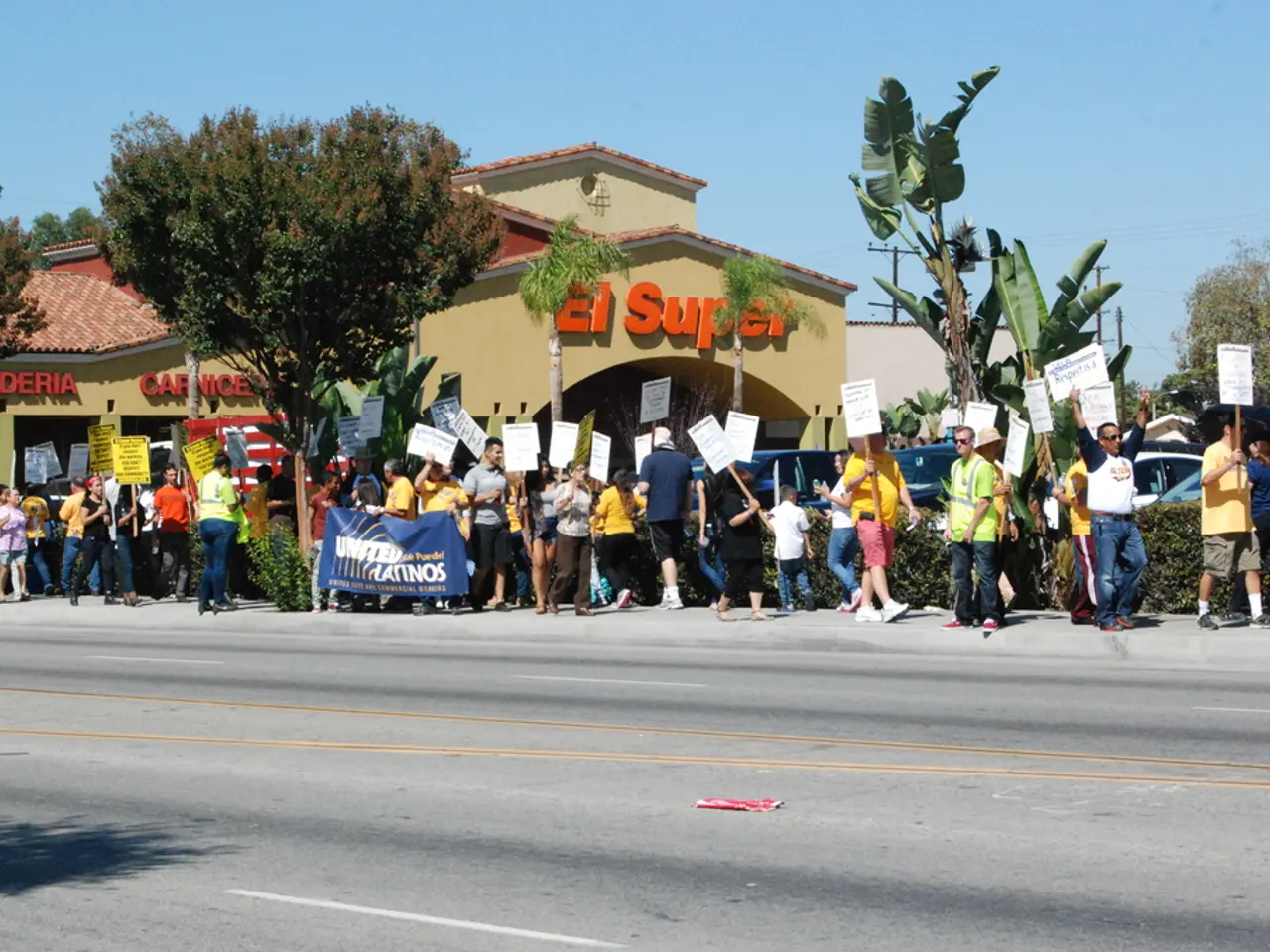Deteriorating voter support for Trump persists. What prevents him from altering his strategy?
In the political landscape of the United States, former President Donald Trump continues to make headlines, albeit not always for positive reasons. His approval rating has taken a significant hit, with only 41% of Americans approving of his performance in office.
This trend is evident in the recurring opinion polls conducted since Trump's second term began in 2021. The data from Statista indicates that these polls have captured public opinion on Trump up to 2025, revealing a deep net disapproval across a range of issues.
Widespread levels of net disapproval exist over inflation and prices (-29%), jobs and the economy (-12%), foreign policy (-11%), and immigration (-6%). Trump's refusal to change course in response to public opinion reflects a larger autocratic trend by the American right.
Trump's supporters, however, remain steadfast in their devotion to him and the MAGA movement, with 80% of Republicans consistently supporting him. This unwavering support is a key factor in Trump's ability to continue and in some cases escalate his unpopular policies, despite sinking numbers.
The former president's actions have been criticised for reflecting a trend towards autocracy, including a retreat to an earlier era in which only votes from white, right-wing Christians would count. This is evident in his threats to oppose the construction of a new football stadium in Washington, D.C., unless the Commanders, the NFL team who will be headquartered there, revert to their racist "Redskins" moniker.
Trump's playbook includes appearing to back down from resistance, regrouping, and finding other ways to advance his agenda. This strategy is evident in his continued use of propaganda, disinformation, and conspiracism to shape public opinion to serve his corrupt goals.
Leading GOP pollster Frank Luntz warns that Trump does not care about being president of the whole country, but only of those who voted for him. This sentiment is further underscored by Trump's baseless accusations against former President Barack Obama, attacks on Hillary Clinton, and musings about stripping comedian Rosie O'Donnell of her American citizenship.
Moreover, Trump's support among Latino voters has dropped significantly, from approximately 50% to 30%. This decline in support, coupled with widespread disapproval among the general public, raises questions about the sustainability of Trump's political influence.
However, it is important to note that the United States has only been a full de jure democracy for approximately 60 years, since the passage of the Civil Rights Act and the Voting Rights Act in 1964 and 1965. As such, the current political climate, while concerning, is a reflection of ongoing efforts to expand and protect democracy in the country.
In conclusion, Donald Trump's approval rating has taken a significant hit, with widespread disapproval across a range of issues. His actions reflect a trend towards autocracy, and his unwavering support among a portion of the population raises concerns about the sustainability of his political influence. However, it is crucial to remember that the United States is still a relatively young democracy, and the current political climate is a reflection of ongoing efforts to expand and protect democracy in the country.
Read also:
- United States tariffs pose a threat to India, necessitating the recruitment of adept negotiators or strategists, similar to those who had influenced Trump's decisions.
- Weekly happenings in the German Federal Parliament (Bundestag)
- Southwest region's most popular posts, accompanied by an inquiry:
- Discussion between Putin and Trump in Alaska could potentially overshadow Ukraine's concerns






